Trump administration takes shape: President-elect completes top 15 Cabinet picks
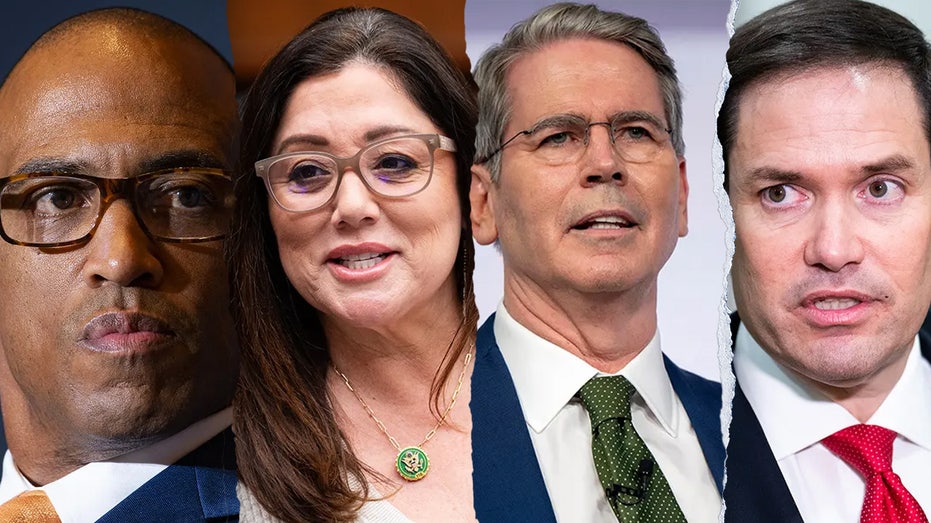
President-elect Trump has rounded out his picks for the top 15 positions within his Cabinet, handpicking an array of establishment and unconventional officials for top posts in just three weeks. Trump has moved at a rapid pace to shape his upcoming administration, which stands in contrast to his first run at the presidency in 2016. The president-elect’s picks have diverse ideologies united under Trump’s Make America Great Again (MAGA) movement. From Robert F. Kennedy, Jr.’s pro-choice stance to Oregon Rep. Lori Chavez-DeRemer’s pro-union stance and former George Soros adviser Scott Bessent, Trump’s Cabinet reflects a new era for Republican presidents. GET TO KNOW DONALD TRUMP’S CABINET: WHO HAS THE PRESIDENT-ELECT PICKED SO FAR? Kennedy, a former Democrat, has been open about his pro-choice stance, much to the chagrin of conservative Republicans. The former presidential candidate shared a video on social media this summer, writing in a post, “I support the emerging consensus that abortion should be unrestricted up until a certain point.” He suggested that this limit should be “when the baby is viable outside the womb.” Viability is understood to occur around 24 weeks gestation. Kennedy will likely be asked in his upcoming hearing the extent of his pro-choice stance. Several Republicans are wary of Trump’s pick for HHS, while others expressed confidence he would act in line with the administration. “I would fully expect any of Trump’s nominees to be pro-life, as is President Trump,” Sen. Ted Budd, R-N.C., told Fox News Digital. “It does need to be addressed.” RFK JR’S ABORTION ‘ISSUE’: SENATE GOP PLANS TO SCRUTINIZE TRUMP HHS PICK’S POSITION “I believe what he’s going to do is do the right thing,” Sen. Rick Scott, R-Fla., said of Kennedy. Trump’s softening stance toward abortion was a notable point during his campaign. Trump has said he would leave abortion to the states after of Roe v. Wade was overturned. Trump notably opposes a federal abortion ban but has remained opposed to late-term abortions. In July, the Republican Party abandoned its long-standing position of advocating for abortions. Chavez-DeRemer’s nomination received strong support from unions, which once stood at odds with Republican ideology. The president-elect lauded her for working “tirelessly with both Business and Labor to build America’s workforce, and support the hardworking men and women of America.” “I look forward to working with her to create tremendous opportunity for American Workers, to expand Training and Apprenticeships, to grow wages and improve working conditions, to bring back our Manufacturing jobs,” Trump said in an Friday announcement. During her short stint as a House Republican, Chavez-DeRemer championed labor rights. She co-sponsored the Protecting the Right to Organize Act, which increased penalties for employers who break labor law and makes it easier to unionize. She also co-sponsored the Public Service Freedom to Negotiate Act, which would expand the powers of public sector unions. Her candidacy for the post was backed by the International Brotherhood of Teamsters union, whose president thanked Trump for the pro-labor pick. “North America’s strongest union is ready to work with you every step of the way to expand good union jobs and rebuild our nation’s middle class,” Teamsters President Sean O’Brien wrote on X. “Let’s get to work!” Similarly, AFL-CIO President Liz Shuler praised Chavez-DeRemer for having “built a pro-labor record in Congress.” “But Donald Trump is the president-elect of the United States — not Rep. Chavez-DeRemer — and it remains to be seen what she will be permitted to do as secretary of labor in an administration with a dramatically anti-worker agenda,” Shuler said. President-elect Trump nominated Bessent as his top economic official to implement “Trumponomics.” Bessent made a name for himself at Soros Capital Management, where he worked as chief investment officer from 2011 to 2015. Following his work with Soros, he founded hedge fund Key Square Capital Management and was a key economic policy adviser and fundraiser for the Trump campaign. He has been an advocate for economic policies like lower taxes, spending restraint and deregulation that have long made up the core of the Republican Party’s platform and has been supportive of Trump’s use of tariffs in trade negotiations. In a statement, Consumer Bankers Association President and CEO Lindsey Johnson congratulated Bessent on the nomination. “As an experienced and accomplished businessman, we applaud Mr. Bessent’s recent comments in which he has called for a surge in small business optimism, a smart deregulatory banking agenda and support for Main Street,” Johnson said. “If confirmed, we look forward to working with Mr. Bessent to advocate for sound financial regulatory policy that enable banks to better support consumers, small businesses and the economy at large.” As America’s top diplomat, Rubio was plucked from his Senate term in Florida to serve in Trump’s upcoming administration. Rubio, a former critic of Trump, has supported strong relations with foreign alliances, including NATO, advocating for a robust U.S. presence in the world. He has also publicly supported Israel’s war against Hamas and spoken out against continued aid to Ukraine. “It is my Great Honor to announce that Senator Marco Rubio, of Florida, is hereby nominated to be The United States Secretary of State. Marco is a Highly Respected Leader, and a very powerful Voice for Freedom,” Trump said in a statement. “He will be a strong Advocate for our Nation, a true friend to our Allies, and a fearless Warrior who will never back down to our adversaries.” INCOMING SENATE DEM ELISSA SLOTKIN TORCHES IDENTITY POLITICS IN 2024 AUTOPSY: ‘GO THE WAY OF THE DODO’ In a statement, Rubio, 53, said he was “honored” by the trust Trump “has placed in me.” “As Secretary of State, I will work every day to carry out his foreign policy agenda,” Rubio wrote on X. “Under the leadership of President Trump we will deliver peace through strength and always put the interests of Americans and America above all else.” WATCH: A combat veteran and former Fox News host, Hegseth was picked as the senior executive in the Department of Defense, which oversees the
Trump picks Texan Brooke Rollins to lead agriculture department
Rollins, who grew up in Glen Rose and once led the Texas Public Policy Foundation, will need Senate confirmation before becoming agriculture secretary.
Trump taps Brooke Rollins as agriculture secretary
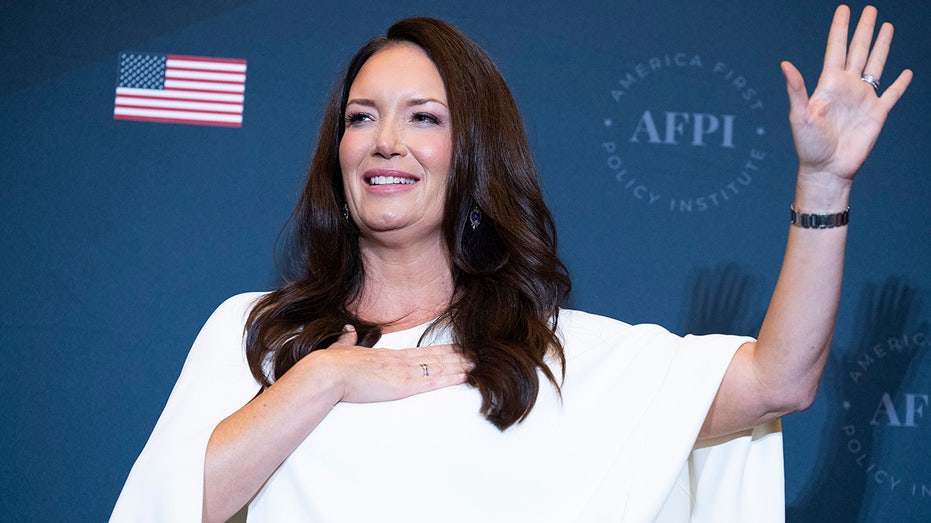
President-elect Trump tapped Brooke Rollins as his agriculture secretary. In a statement on Saturday, Trump lauded Rollins’ “commitment to support the American Farmer, defense of American Food Self-Sufficiency, and the restoration of Agriculture-dependent American Small Towns.” “A proud Graduate of Texas A&M University, Brooke earned a Bachelor’s of Science Degree in Agriculture Development, and J.D., with Honors,” the announcement said. “From her upbringing in the small and Agriculture-centered town of Glen Rose, Texas, to her years of leadership involvement with Future Farmers of America and 4H, to her generational Family Farming background, to guiding her four kids in their show cattle careers, Brooke has a practitioner’s experience, along with deep Policy credentials in both Nonprofit and Government leadership at the State and National levels.” Rollins served as director of the Office of American Innovation and acting director of the Domestic Policy Council during the first Trump administration. Since her time in the Trump White House, Rollins has co-founded the America First Policy Institute think tank.
Ric Grenell under consideration to be Trump’s point man on Ukraine: report
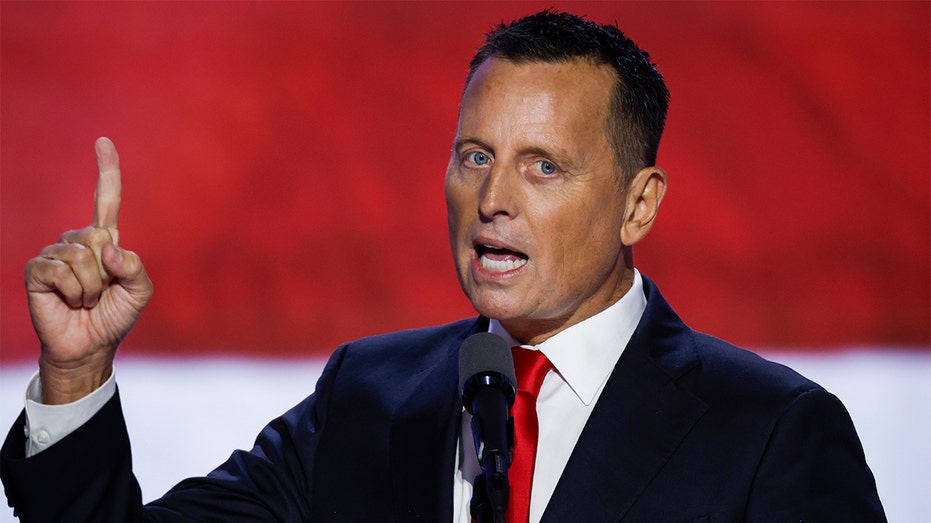
Richard “Ric” Grenell, the former acting director of National Intelligence in President-elect Trump’s first administration, is reportedly under consideration to be special envoy for the Russia-Ukraine conflict. Currently, there is no special envoy responsible for bringing an end to the war in Eastern Europe. Trump is strongly considering whether to create the role, Reuters reported, citing four sources familiar with the president’s deliberations. If he does create the new position, Grenell is said to be a leading candidate, though Trump may select someone else, the sources told Reuters. There is also no guarantee that Grenell would accept the position if it were offered to him, the sources reportedly said. HERE ARE THE MOST TALKED-ABOUT CANDIDATES FOR TOP POSTS IN TRUMP’S ADMINISTRATION Fox News Digital was previously told Grenell was under consideration to be U.S. Secretary of State. Florida Sen. Marco Rubio was instead named to lead the State Department. Neither Grenell nor the Trump transition team responded to requests for comment. GET TO KNOW DONALD TRUMP’S CABINET: WHO HAS THE PRESIDENT-ELECT PICKED SO FAR? Trump repeatedly made campaign promises to quickly resolve the conflict between Russia and Ukraine, if elected, although he has never laid out a specific plan to end the war. Grenell, an outspoken Trump loyalist, has made statements in the past that may be of concern to Ukrainian leadership. ‘NEW’ RUSSIAN MISSILE USED AGAINST UKRAINE NOT HYPERSONIC, DEFENSE OFFICIALS SAY During a Bloomberg round table in July, he advocated for the creation of “autonomous zones” as a means of settling the conflict, which began after Russia invaded Ukrainian sovereign territory. He also suggested he would not be in favor of Ukraine joining the North Atlantic Treaty Organization in the immediate future, a position he shares with many Trump allies. Grenell’s supporters note he has had a long diplomatic career and has a deep knowledge of European affairs. In addition to serving as ambassador to Germany, Grenell was also a special presidential envoy for Serbia and Kosovo peace negotiations. Prior to working for the first Trump administration, Grenell was a U.S. State Department spokesman to the United Nations under President George W. Bush. He has advised various Republican candidates and was a foreign policy spokesman for Mitt Romney during the 2012 presidential campaign. Grenell was previously a Fox News contributor. Reuters contributed to this report.
Delhi-NCR Air Pollution: Noida schools to stay closed till THIS date; check details

The physical classes in Noida were suspended last week in view of harmful levels of air quality in the region.
Philippines VP Sara Duterte threatens Marcos assassination if she is killed
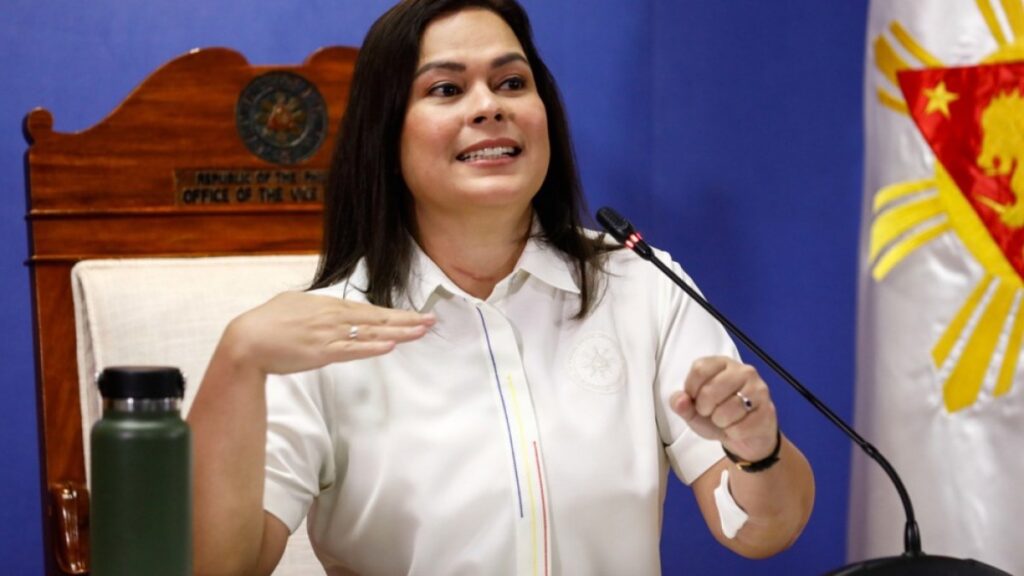
The president’s security has been boosted after his deputy’s ‘active threat’ that were ‘made so brazenly in public’. Security agencies in the Philippines have stepped up safety protocols after Vice President Sara Duterte threatened to have President Ferdinand Marcos Jr assassinated if she was killed. Duterte, an ally of Marcos until recent months, made the threat on Saturday, as a rift between the two most powerful political families in the county widens. “This country is going to hell because we are led by a person who doesn’t know how to be a president and who is a liar,” she said in the profanity-laced briefing broadcast on her Facebook page. “Don’t worry about my safety. I have talked to a person and I said, if I get killed, go kill BBM [Marcos], [First Lady] Liza Araneta, and [Speaker] Martin Romualdez. No joke. No joke,” she said. “I said, do not stop until you kill them and he said yes.” Duterte made the statement in response to comments urging her to stay safe while she was in the House of Representatives, where her chief of staff was detained for failing to reply to questions on the alleged misuse of funds at the vice president’s office. The vice president did not cite any threat against her. The presidential communications office said Duterte’s remarks were being taken as a serious threat against Marcos. “Acting on the vice president’s clear and unequivocal statement that she had contracted an assassin to kill the president if an alleged plot against her succeeds, the executive secretary has referred this active threat to the Presidential Security Command for immediate proper action,” it said in a statement. “Any threat to the life of the president must always be taken seriously, more so that this threat has been publicly revealed in clear and certain terms,” it added. Executive Secretary Lucas Bersamin referred the “active threat” against Marcos to an elite presidential guards force, which said it considered the Duterte’s threat, which was “made so brazenly in public”, a national security issue. Duterte is the daughter of Marcos’s predecessor, Rodrigo Duterte, who is notorious for his crude language and a controversial war on drugs that is under investigation by the International Criminal Court. She remained Marcos’s deputy after resigning from her post as education secretary in the cabinet in June, indicating a crack in their political alliance that propelled them to a landslide victory in 2022. In October, Vice President Duterte told reporters that her relationship with Marcos had become so “toxic” that she sometimes imagines beheading him. She also confessed that she felt “used” after teaming up with Marcos. She threatened to dig up the remains of Marcos’s father, the late dictator Ferdinand Marcos Sr, from the national cemetery and dump them in the sea. The political rift comes before mid-term elections in May, when Filipinos are to vote for new members of the House of Representatives, half of the Senate and thousands of local officials. It will be a litmus test of Marcos’s popularity and an opportunity for him and his political allies to consolidate power. Even though Duterte resigned from the cabinet, she remains the constitutional successor to the 67-year-old president. Adblock test (Why?)
1000 days of war and the toll on Ukraine’s media

President Biden’s decision to allow Ukraine to fire US missiles into Russia has brought the world’s two leading nuclear powers to a head. Western media overlooks the broader implications of this move. Inside Ukraine, journalists face the dual threats of restricted press freedoms and Russian aggression. Contributors:Branko Marcetic – Writer, Jacobin MagazineLeonid Ragozin – Journalist & authorPauline Maufrais – Ukraine program manager, Reporters Without BordersSevgil Musaieva – Editor-in-chief, Ukrainska Pravda On our radar Israel’s media and political class have united in their fury over the arrest warrants issued by the ICC for Israeli leaders. Tariq Nafi looks at the media coverage. Silenced voices: Afghan journalism in the shadow of Taliban rule Since the Taliban regained power, Afghanistan’s media landscape has faced severe restrictions. We sat down with the former head of Tolo News to discuss working in exile and keeping the spirit of Afghan journalism alive. Featuring:Lotfullah Najafizada – Former director of news, Tolo TV Adblock test (Why?)
Israel and its supporters cannot gaslight the law
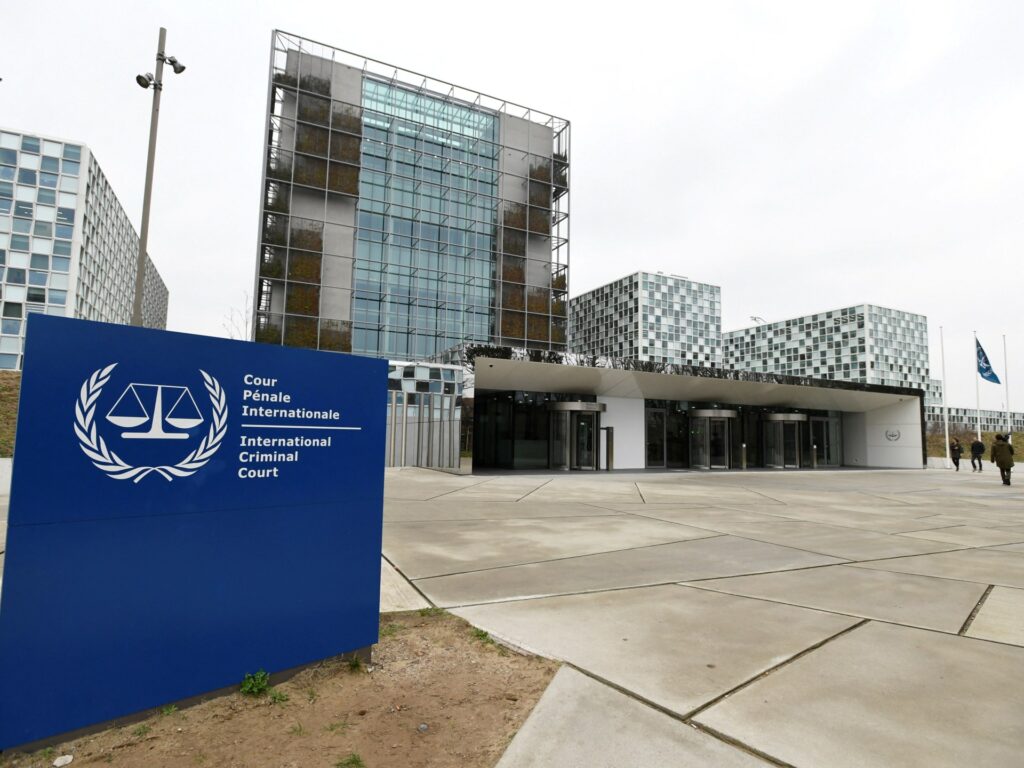
It was expected that the issuance of arrest warrants by the International Criminal Court (ICC) against Israeli Prime Minister Benjamin Netanyahu and Defence Minister Yoav Gallant for their roles in crimes committed against Palestinian civilians in Gaza would cause a flood of furious responses from Israel and its allies. The chorus is as colourful as its arguments are flimsy and dehumanising: from French writer Bernard-Henri Levy, who claims the ICC can only prosecute in countries without a “proper judicial system” to Republican Senator Lindsey Graham declaring war on the ICC and any nation that dares to implement its warrants. However, the more sinister attacks, illustrated by statements of Democratic Congressman Ritchie Torres and Israeli politician Naftali Bennett, which argue that Israel’s actions were justifiable as self-defence or reprisals against Hamas’s brutal October 7 attack, constitute a dangerous form of gaslighting and need to be debunked. These arguments fail not only on moral but also on legal grounds, when taking into account international humanitarian law and legal precedents set by special courts like the International Criminal Tribunal for the former Yugoslavia (ICTY). The protections afforded to civilians in armed conflict are absolute and non-derogable, and the ICC is right to enforce them. The argument that Israel is exercising its “right to self-defence” has been made throughout this war and not just in response to legal rulings. However, self-defence under international law is not a justification for violating fundamental legal principles. The targeting of civilians, indiscriminate attacks and disproportionate use of force are explicitly prohibited under the Geneva Conventions and customary international law. During the ICTY’s prosecution of Milan Martic, leader of Serb rebels in Croatia, for the shelling of Zagreb, the Appeals Chamber unequivocally held that attacks against civilians cannot be justified by self-defence. It stated that “whether an attack was ordered as pre-emptive, defensive or offensive is from a legal point of view irrelevant” if the conduct of the attack violates principles of international law. In Gaza, evidence indicates that Israeli military operations have resulted in widespread and systematic attacks against civilians. Residential areas, hospitals and schools – protected spaces under international humanitarian law – have been subjected to intense bombardment. Even in cases where military targets may exist, attacks that fail to distinguish between civilians and combatants or cause disproportionate harm to civilian populations violate Articles 51 and 52 of Additional Protocol I to the Geneva Conventions. Therefore, Torres’s argument that the ICC is “criminalising” self-defence does not hold. Bennett, who himself has made statements of intent to commit crimes against Palestinian civilians, asserts that Israel is “fighting back” Hamas’s attacks. However, international law unequivocally prohibits reprisals against civilian populations. Article 51(6) of Additional Protocol I states: “Attacks against the civilian population or civilians by way of reprisals are prohibited in all circumstances.” This prohibition applies irrespective of the conduct of the opposing party. The ICTY precedents further reinforced this, including in the case of Martic, holding that reprisals must meet strict conditions, including necessity, proportionality, and adherence to humanitarian principles. Even when responding to serious violations by the adversary, acts of reprisal must respect international law. The indiscriminate and disproportionate nature of attacks in Gaza, including the use of heavy explosives in densely populated areas, renders the argument of reprisal legally untenable. Voices parroting the points made by Torres and Bennett argue that Hamas’s alleged use of human shields absolves Israel of responsibility for civilian casualties. This is a dangerous misrepresentation of international law. While the use of human shields by Hamas would itself be a violation of international law, it does not diminish Israel’s obligation to avoid harm to civilians. Additional Protocol I clarifies that violations by one party do not permit the opposing party to disregard its own legal obligations. The Appeals Chamber of the ICTY addressed this issue directly, emphasising that the failure of one party to adhere to its obligations does not absolve the other from its responsibilities. In the case of Gaza, indiscriminate aerial bombardments have resulted in tens of thousands of civilian deaths, raising serious concerns about whether adequate precautions were taken to minimise harm, as required by Articles 57 and 58 of Additional Protocol I. A core tenet of international humanitarian law is the principle of proportionality, which prohibits attacks where the expected civilian harm would be excessive in relation to the anticipated military advantage. The ICC’s charges against Israeli leaders focus precisely on this issue. Reports from Gaza have highlighted the devastating impact of military operations on civilians, with entire neighbourhoods razed, residential buildings purposefully demolished and vital infrastructure destroyed. Moreover, the principle of distinction, enshrined in Article 48 of Additional Protocol I, mandates that parties to a conflict must at all times distinguish between civilian populations and combatants. Weapons and tactics that cannot discriminate between the two, such as large-scale aerial bombardments of urban areas, are considered inherently unlawful. The case of Martic illustrates this point: the ICTY found that the use of indiscriminate weapons, such as cluster munitions, in civilian areas constitutes a direct attack on civilians and a grave breach of international law. The parallels with the weaponry and tactics employed in Gaza are evident. Israel’s actions in Gaza have clearly provided the ICC with enough ground to pursue a case against Netanyahu and Gallant. In this context, Torres’s assertion that the court is engaging in an “ideological crusade against the Jewish State” is simply false. The ICC does not single out specific nations; it prosecutes individuals where there is credible evidence of war crimes, crimes against humanity, or genocide. The ICC’s intervention serves a critical purpose: to uphold the universal principles of humanity enshrined in international law. Accountability is essential to deterring future violations and ensuring justice for victims. To dismiss the ICC’s actions as a “kangaroo court”, as Torres did, disregards the court’s mandate and the legal precedents it draws upon, including those established by tribunals for the former Yugoslavia, Rwanda and Sierra Leone. While the October 7 attack by Hamas constitutes a heinous
Bihar bypolls: Prashant Kishor’s Jan Suraaj Party fails to open account, all 4 candidates lost
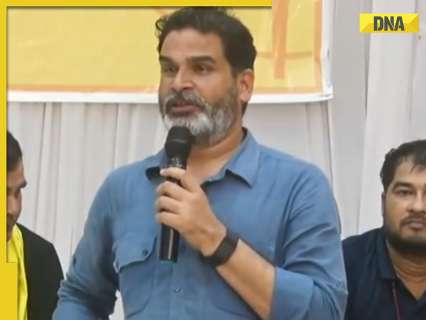
Jan Suraaj candidates failed to make a significant impact, finishing third in three constituencies and one in the fourth position.
Politechnica’s Insights on Women Voters Shaping Indian Elections

Politechnica has been at the forefront of this shift, crafting strategies that resonate with women’s needs and aspirations.
